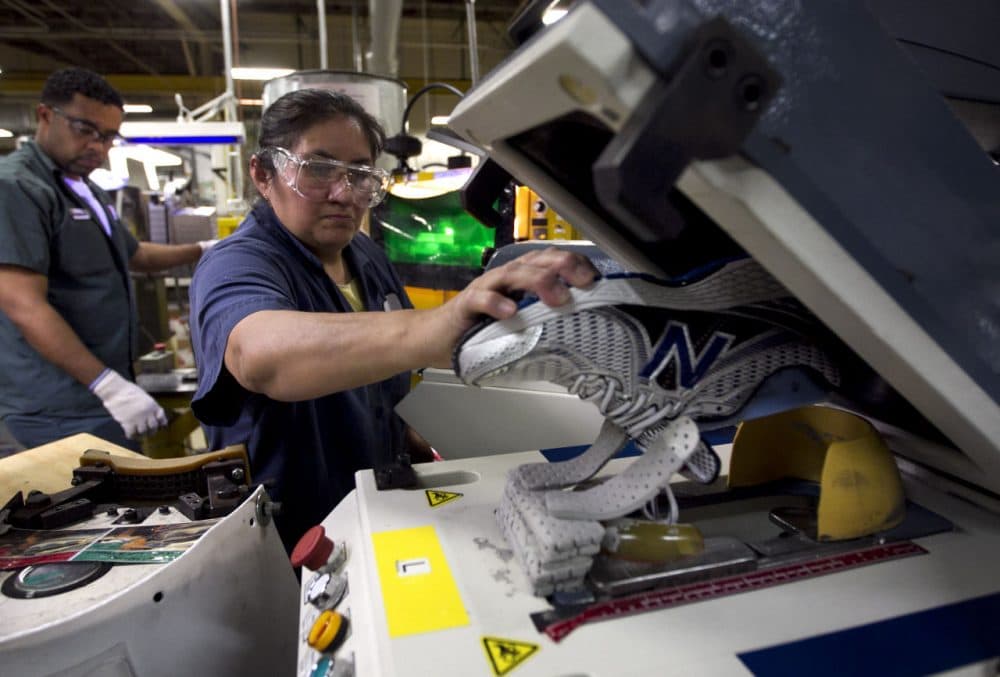Advertisement
MIT Professor On Local Impacts Of International Trade
Resume
Just about everyone is talking about trade — at least on the presidential campaign. Bernie Sanders on Sunday on NBC's "Meet the Press" went after Hillary Clinton's past support of U.S. trade agreements.
“When you vote for virtually every trade agreement that has cost workers of this country millions of jobs," Sanders said, "the American people do not believe that that is the kind of president that we need to protect the working families of this country.”
And Donald Trump at a rally in Rochester, New York on Sunday pointed out that "Rochester lost 90,000 jobs since 1970, 4,000 jobs in the last six months." His conclusion? "We're going to make the greatest trade deals ever made by any country."
There are others who say we need to look at the big picture when thinking about trade deals. Steve Odland, CEO of the Committee for Economic Development, a nonpartisan public policy organization spoke to NBC last month and cautioned against slashing trade deals.
"We need adults here to come back and say look, everybody take a breath because there are real benefits here to trade and with the wrong actions we could break the very economy that we have put in place here over the years," Odland said.
So how should we think about free trade agreements and the impacts they have on the American economy?
Guest
David Autor, professor of economics at MIT.
More
The China Shock: Learning From Labor Market Adjustment To Large Changes In Trade
The Boston Globe: In Campaign Rhetoric, Free Trade Is The Big Loser
- "Politically, it leads one to this conclusion: No matter what the economic experts and advocates may say, average people simply don’t see trade pacts as a positive for them. Increasingly, the question free-trade advocates will have to answer is the one Wisconsonites are asking: What, really, is in this for me?"
The Boston Globe: Anti-Trade Rhetoric Is A Recipe For Disaster
- "The TPP does have its flaws, particularly in its overshoot on protection of intellectual property rights. But the idea that the deal will be a huge job killer for the United States is highly debatable, and something does need to be done to make it easier to sell high-tech goods to the developing world, including China, without fear that such goods will be instantly cloned. A failure to ratify the TPP would almost certainly condemn tens of millions of people in the developing world to continued poverty."
The New York Times: On Trade, Angry Voters Have a Point
- "Voters’ anger and frustration, driven in part by relentless globalization and technological change, may not propel either candidate to the presidency. But it is already having a big impact on America’s future, shaking a once-solid consensus that freer trade is, necessarily, a good thing."
The Washington Post: Five Myths About Trade
- "Expanded trade with China over the past 15 years has cost the United States at least 2 million jobs. Cracking down on trade with China, by taxing the cheap consumer goods it ships to our store shelves, could cost millions of additional jobs. That both of these things can be true is the conundrum of trade, the breakout issue of the 2016 presidential election."
This segment aired on April 11, 2016.